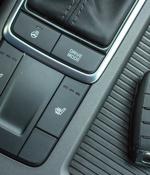Security News

Vulnerabilities in mobile apps exposed Hyundai and Genesis car models after 2012 to remote attacks that allowed unlocking and even starting the vehicles. Security researchers at Yuga Labs found the issues and explored similar attack surfaces in the SiriusXM "Smart vehicle" platform used in cars from other makers that allowed them to "Remotely unlock, start, locate, flash, and honk" them.

Sirius XM's Connected Vehicle Services has fixed an authorization flaw that would have allowed an attacker to remotely unlock doors and start engines on connected cars knowing only the vehicle identification number. Yuga Labs' Sam Curry detailed the exploit in a series of tweets, and confirmed that the patch issued by SiriusXM fixed the security issue.

Pendragon Group, with more than 200 car dealerships in the U.K., was breached in a cyberattack from the LockBit ransomware gang, who allegedly demanded $60 million to decrypt files and not leak them. Pendragon owns CarStore, Evans Halshaw, and Stratstone luxury car retailer, that sell brands cars for all budgets, from Jaguar, Porsche, Ferrari, Mercedes-Benz, BMW, Land Rover, or Aston Martin, to Renault, Ford, Hyundai, Nissan, Peugeot, Vauxhall, Citroen, DS, Dacia, and DAF. Pendragon did not provide many details about the security incident and limited the information to saying that there is no impact on operations.

A car theft ring that used fraudulent software to "Hack" and steal vehicles with remote keyless entry and ignition systems has been dismantled by the French National Gendarmerie, Europol announced on Monday. "The criminals targeted vehicles with keyless entry and start systems, exploiting the technology to get into the car and drive away," the EU law enforcement agency said.

Law enforcement authorities in France, in collaboration with Spain and Latvia, have disrupted a cybercrime ring that leveraged a hacking tool to steal cars without having to use a physical key fob. "The criminals targeted vehicles with keyless entry and start systems, exploiting the technology to get into the car and drive away," Europol said in a press statement.

Japanese industrial giants NTT Communications Corporation and Denso Corporation have decided to start a business "To respond to the threat of increasingly sophisticated cyber-attacks against vehicles." The two companies have collaborated on vehicle security for a few years now, with NTT Communications bringing its consulting expertise around technologies such as networking, cloud computing, and managed infosec services such as building security operations centres for clients.

Europol this week said it has arrested 31 people in a crackdown on a car-theft ring that developed and used a technique to steal keyless vehicles. The thieves were apparently able to update or manipulate the cars' software so that the doors could be opened and engine started without needing the owner's wireless keyfob.

Authorities from France, Latvia, and Spain arrested 31 suspects believed to be part of a car theft ring that targeted vehicles from two French car manufacturers. The criminals only targeted cars that use keyless entry and start systems and stole them after exploiting their keyless technology to unlock the doors and start the engines without having to use the key fobs.

A developer says he was able to run his own software on his car infotainment hardware after discovering the vehicle's manufacturer had secured its system using keys that were not only publicly known but had been lifted from programming examples. Turns out the encryption key in that script is the first AES 128-bit CBC example key listed in a NIST document.

TheMarkup has an extensive analysis of connected vehicle data and the companies that are collecting it. The Markup has identified 37 companies that are part of the rapidly growing connected vehicle data industry that seeks to monetize such data in an environment with few regulations governing its sale or use.